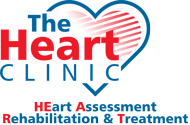ELECTROCARDIOGRAPHY

An electrocardiogram (also known as an “ECG” or an EKG) is a routine test used to record the heart’s electrical activity. This test can help a cardiologist—a doctor who specializes in the heart—identify any abnormalities in the heart’s rhythm.
During the test, a technician will place small disks or electrodes on the patient’s chest. These electrodes are attached to wires, called leads, connected to the electrocardiogram machine that will trace the path of electrical energy through the heart and provide a print-out for the cardiologist to review.
The procedure is painless and takes approximately 5 minutes to complete.
EXERCISE STRESS TESTING
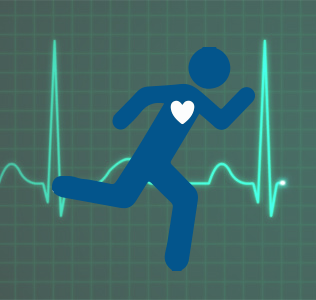
An exercise stress test sometimes also known as a “treadmill test” or “stress test” records the electrical activity of the heart at rest, during exercise, and after exercise. It enables the doctor to see how a patient’s heart is performing during physical activity and, also, to identify possible heart complications during exercise. Physicians will also order this test to see how you are responding to certain medications you may be taking and/or monitor your blood pressure under physical activities. This test also monitors the electrical function/conduction of your cardiac cells and allows our cardiologists to determine many different cardiac and non-cardiac factors.
This test is performed by a technician who will place small disks called electrodes on the patient’s chest and a blood pressure cuff around their arm. The electrodes are attached to wires, called leads that are connected to the electrocardiogram machine.
While wearing the electrodes and blood pressure cuff, the patient is required to walk on a treadmill. Every two to three minutes, the technician will increase the speed and incline causing the patient to work harder. By doing this test, the doctor or technician is able to see any changes in the heart’s electrical pattern and blood pressure levels, which may indicate that the heart may not be receiving enough oxygen.
This test takes approximately 30 minutes to complete.
ECHOCARDIOGRAM
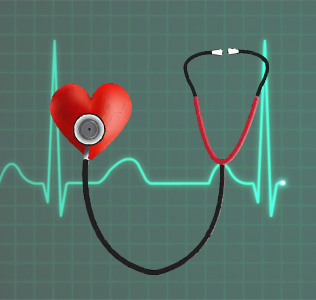
An echocardiogram is a test that uses sound waves, or ultrasound, to produce a moving picture of the heart. These sound waves are transmitted through a wand-like device called a transducer into the body. The sound waves bounce off the heart and return to the transducer as echoes, which are then turned into moving images of the heart that can be viewed on a television monitor. This test allows the doctor to learn about the size and shape of the heart muscle and to evaluate its function, valves, and the flow of blood through the heart. This test can help detect many heart diseases, helps with cardiac management and follow up management of patients with any suspected or known heart diseases. An echocardiogram is pain-free.
The procedure takes about 30 – 45 minutes.
STRESS ECHOCARDIOGRAM

A stress echocardiogram test, or sometimes known as a “stress echo”, is a combination of a stress test along with an echocardiogram of your heart. Its main purpose is to assess the wall motion of your heart in response to physical stress (on the treadmill). Stress echocardiography is also non-invasive.
24H/48H/72H/7DAY/14 DAY HOLTERS
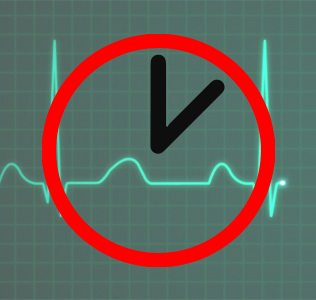
Holter monitoring is a test that records a patient’s heart beat for 24, 48, or 72 hours plus 7 day and 14 day tests. This test allows your physicians to capture more data on your cardiac activity over a longer period of time compared to a single echocardiogram test session. There is no pain or risk associated with this test.
For this test, a patient has to visit the office to have the monitor fitted and to receive instructions on how to use it. A technician will place electrodes on the patient’s chest. These electrodes are attached to wires called leads that connect to a small device to be worn on a belt around the waist. The patient is advised to carry on a normal routine and keep a log of all the daily activities. For patients who wear monitors for 24, 48, 72 hours you MUST NOT shower or bathe for the duration of the test, as it is important to keep the monitor and electrodes dry. Patients who are asked to wear monitors for 7 to 14 days will be supplied with additional replacement electrodes to permit bathing.
EVENT LOOP MONITORING

An event loop monitoring test is similar to a holter test in that we use a portable device to continuously monitor and record your cardiac activity. The difference with an event loop monitor is that when you experience symptoms of a cardiac problem, such as a palpitation and/or chest discomfort, you press a button on the recording device so that your physician can see exactly what your cardiac activity looks like at that exact moment and use that data for further analysis. This device is worn for 14 days or up to 30 events recorded on the monitor.
AMBULATORY BLOOD PRESSURE MONITOR
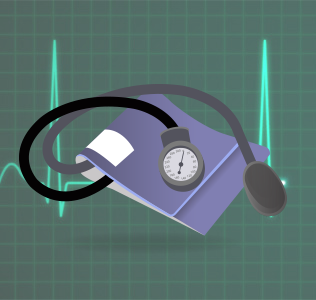
A 24-hour ambulatory Blood Pressure monitor provides valuable information for patients with elevated blood pressure, fluctuating blood pressure readings, or to rule out white coat syndrome. The patient wears the monitor for 24 hours with values measured every half-hour during the day and every hour overnight. A report is generated and sent back to the referring physician.
*Note: this is a $75 non OHIP-covered service
CARDIAC REHAB
Unlike other cardiac rehabilitation programs, the one offered by THE HEART CLINIC is at NO EXTRA CHARGE to the patient. The program provides patients with the necessary education and a home-based exercise prescription. It utilizes various technologies to monitor new progress and communicate with the patients over the six-month period of the program.
Patients who should be referred to the program are those who have cardiac risk factors such as hypertension, abnormal cholesterol, family history of cardiac diseases, smokers or people with diabetes. Others that could benefit for primary prevention includes sedentary lifestyle and obese patients.
The program is indicated in patients who have documented CAD, previous MI or cardiac intervention such as coronary bypass or stent deployment.
Other patients that could benefit from the program are patients who have dysrhythmia, valvular diseases or surgery and with peripheral vascular disease. In addition, patients who had a TIA or a non-disabling stroke.
SPORTS CARDIOLOGY AND EXERCISE PRESCRIPTION
This program aimed at assisting active athletes, who have a medical problem, or who are in a risk group, while also assisting heart patients who wish to start engaging in physical activity. In addition, this program is designed for patients of any age, particularly over 40 years old who have been sedentary and may have cardiac risk factors and would like to engage in regular physical activity.
